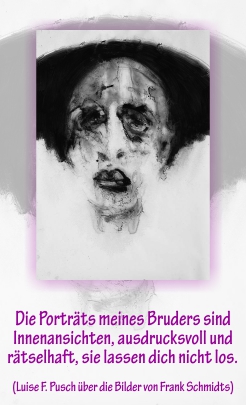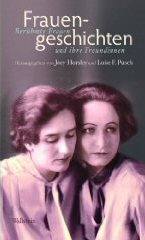Biographies Wisława Szymborska

(Maria Wisława Anna Szymborska)
born on July 2, 1923 in Bnin (today part of Kórnik)/ Poland
died on February 1, 2012 in Krakow/Poland
Polish poet, Nobel laureate (1996)
100th birthday on July 2, 2023
Biography • Quotes • Literature & Sources
Biography
Szymborska was not someone to make a fuss about herself or her work, even after she was awarded the Nobel Prize in Literature (1996). She never liked being in the limelight and refrained from becoming, as she put it, a “personality” overnight: She wanted to remain a “person”. In her circle of friends she spoke of the time before or after what she termed the “tragedy”. She was alluding to the sudden notoriety she experienced after receiving the Nobel Prize. She had always shared little about herself, claiming that anything needing to be said about her could be found in her poems. Acquaintances characterized her as reserved, and as someone who did not show her emotions. But she had a strong sense of humor and irony. In addition to writing, she had another great passion: smoking.
Szymborska retained a life-long ability to marvel, something many lose as adults. It is this philosophical wonderment that had opened up new horizons for many other thinkers and writers before Szymborska. Nature, which is so perfectly made and coordinated, frequently evokes her wonderment. Nature exists without asking itself questions about “why” and “what next”. A tree grows and lets its leaves sprout in the spring without considering whether this is of any use. Nature and man, even if the latter is part of nature, are separated by many things. As far as we know, only man thinks about life; nature does not. Only man names the environment; nature is probably unaware of man’s existence. If man does exist for nature, then most certainly in a completely different form.
The leitmotif that runs through Szymborska's entire oeuvre is, on the one hand, man and man’s circumstances, and, on the other, the almost directly related theme of man's fate and the various circumstances that can influence life: chance, time, history, politics, or biology. Szymborska's sensitivity to injustice and pain can be detected even in her early poems.
In addition to people and their lives, Szymborska is also interested in the small, forgotten, or overlooked things that shape everyday life, often imperceptibly. She strives to understand the world and reflects upon it and people. One senses that she enjoys life while at the same time she recognizes that those who seek must often first experience pain before certain insights can be gained. This, too, is a part of living.
The passage of time is a constituent feature of Szymborska's poetry. The transience of human life, which is short in comparison to the history of the world, underlies many of her poems. The poet's awareness of the temporal limitations of her own existence prompts her to put life into perspective. In distancing oneself from individuality, from everyday worries and dreams, and in gazing on the self as if from the outside, one realizes that one is merely a tiny dot on the axis of time.
What must you do?
You must submit an application
and enclose a Curriculum Vitae.
Regardless of how long your life is,
the Curriculum Vitae should be short.
Be concise, select facts.
Change landscapes into addresses
and vague memories into fixed dates.
Of all your loves, mention only the marital,
and of the children, only those who were born.
It’s more important who knows you
than whom you know.
Travels—only if abroad.
Affiliations—to what, not why.
Awards—but not for what.
Write as if you never talked with yourself,
as if you looked at yourself from afar.
Omit dogs, cats, and birds,
mementos, friends, dreams.
State price rather than value,
title rather than content.
Shoe size, not where one is going,
the one you are supposed to be.
Enclose a photo with one ear showing.
What counts is its shape, not what it hears.
What does it hear?
The clatter of machinery that shreds paper.
(Writing a Curriculum Vita, 1986, translated from Polish by G. Drabik and A. Flint)
Szymborska's poetry is universal, philosophically witty and true to life. The language the poet uses is simple, and she sometimes includes colloquial expressions. Readers inevitably notice that she enjoys writing; it can be assumed that she wants readers to enjoy reading just as much. Woody Allen confessed to being an avid reader of Wisława Szymborska's poetry. She was so much funnier than he was! Szymborska is also the author of humorous limericks and of cut-out, post-card collages she painstakingly created and posted in lieu of letters. She sent such a collage to Woody Allen.
(Text von 2012. Translated with DeepL.com, edited by Ramona Fararo, 2023)
For additional information (pictures, sources, bibliography) please consult the German version.
Author: Prisca Isabel Zurrón
Quotes
“If I go to hell, I'll probably have to sign books non-stop there, too.” (Wisława Szymborska
Literature & Sources
Szymborska, Wislawa (1986): Writing a Curriculum Vita, translated from Polish into English by G. Drabik and A. Flint, available on-line inwardboundpoetry.blogspot.com
If you hold the rights to one or more of the images on this page and object to its/their appearance here, please contact Fembio.



